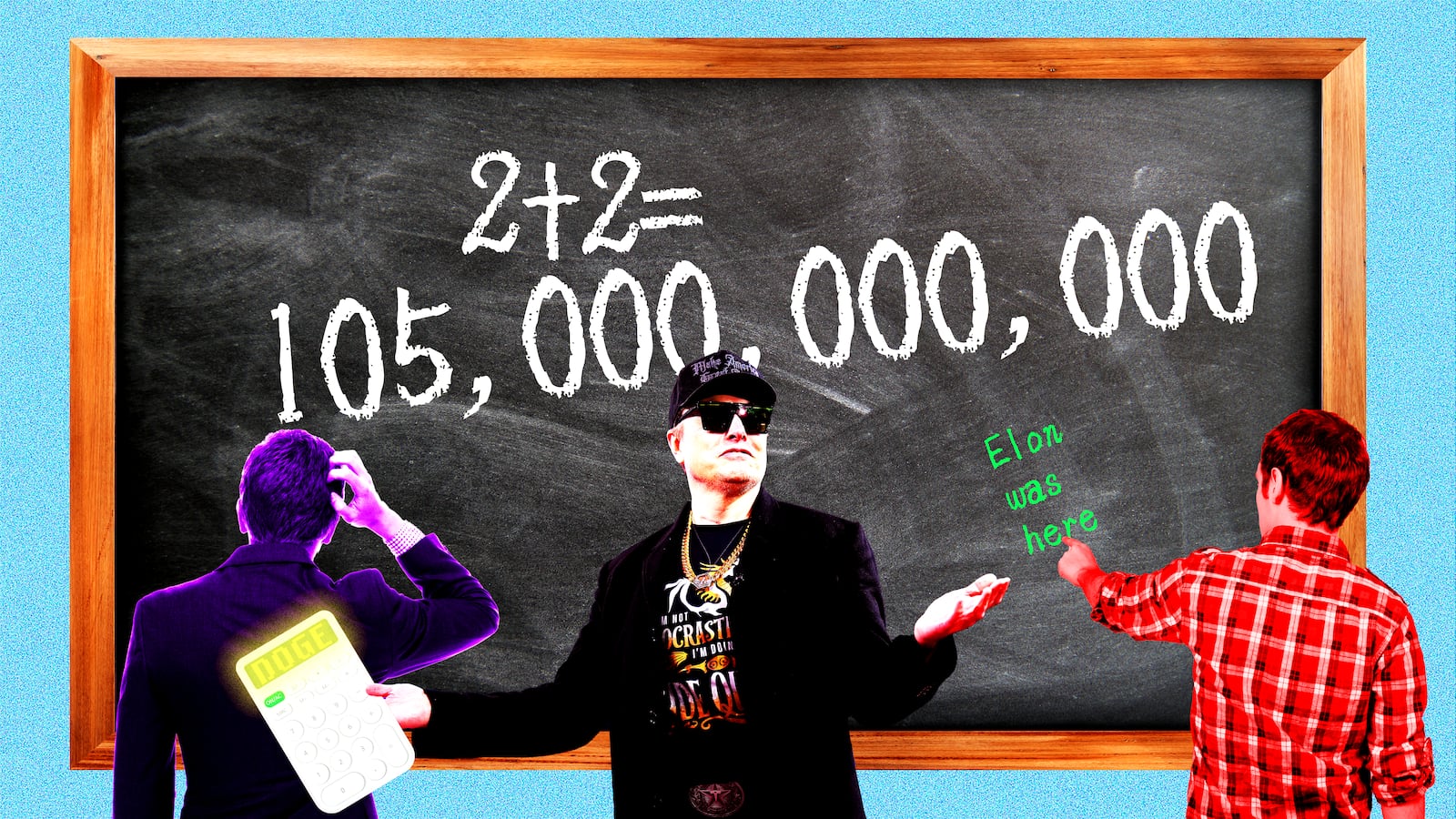It is just not adding up for Elon Musk’s Department of Government Efficiency.
The controversial service updated its “wall of receipts” Sunday and now claims to have saved U.S. taxpayers an “estimated” $105 billion—yet, its own website tallies a much smaller number.
DOGE’s three savings groups add up to approximately $19 billion, by its own count, with an estimated savings of $8 billion for canceled contracts, $10 billion for nixed grants, and $660 million for terminated leases. This, by DOGE’s math, has somehow saved $652.17 per U.S. taxpayer—another figure that appears to be vastly inflated.

Musk’s team has been watched with an especially critical eye since its debut receipts wall was riddled with errors last month—most notably that it was claiming to have recouped $8 billion in savings by nixing a DEI contract actually worth just $8 million.
DOGE quickly amended that mistake and others, but is yet to provide answers for why its “estimated savings” are so much higher than what they can show proof for on its website, which updates receipts weekly but promises to soon update in “real-time.”
A bombshell report in The New York Times revealed this weekend that DOGE has been claiming credit for contract cancelations that are decades old in some cases. Among those briefly on DOGE’s site: $53.7 million in claimed savings for a U.S. Coast Guard contract that was canceled in 2005 when George W. Bush was president.
The Times alleged DOGE has been removing erroneous “savings” from its wall of receipts just to replace the mess-ups with new errors. While the growing number of contracts is daunting for the average American to scrutinize, the mistakes are not getting past experts who have long tracked government spending, like Lisa Shea Mundt from The Pulse of GovCon consulting firm.
“These are not savings,” she told the Times. “The money’s been spent. Period. Point blank.”
The country’s paper of record suggested DOGE’s team of young staffers—many of whom have connections to Musk’s companies—may not be up to the task of cutting complex government programs and contracts.
“The mistakes also seem to call into question the team members’ competence—whether they understand the government well enough to cut it while avoiding catastrophe,” the Times wrote.
Musk warned in DOGE’s early days that his team will make mistakes but promised to amend them quickly. When dealing with the federal government, however, those gaffes could cost lives. At least one former USAID staffer claimed Monday the lives lost globally could be in the tens of thousands.
Musk admitted—notably with a smile and a chuckle—at a Cabinet meeting last week that DOGE had briefly axed funding for ebola prevention, but claimed the funding was quickly restored. That supposedly swift action has not always been the case with the restoration of critical contracts, however.
Jon Favreau, co-host of Pod Save America and former Barack Obama speechwriter, called out Musk over the weekend after DOGE’s work led to 400,000 boxes of USAID-branded “Ready-to-Use Therapeutic Food” being stuck in a Georgia warehouse.
Favreau wrote that “kids will die because Elon Musk starved them of food we already paid for.”
Musk attacked Favreau, calling him “an imbecilic propagandist who lies to score cheap political points,” but said he would investigate. He later confirmed that the cancelation was real, but said it had been reversed.
CNN reported the contract was restored by Monday, allowing the specially-made peanut butter paste—used by humanitarian aid workers around the globe—to be shipped out for use.







